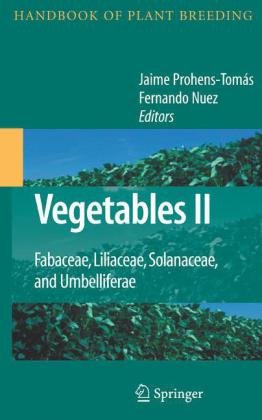

Most ebook files are in PDF format, so you can easily read them using various software such as Foxit Reader or directly on the Google Chrome browser.
Some ebook files are released by publishers in other formats such as .awz, .mobi, .epub, .fb2, etc. You may need to install specific software to read these formats on mobile/PC, such as Calibre.
Please read the tutorial at this link: https://ebookbell.com/faq
We offer FREE conversion to the popular formats you request; however, this may take some time. Therefore, right after payment, please email us, and we will try to provide the service as quickly as possible.
For some exceptional file formats or broken links (if any), please refrain from opening any disputes. Instead, email us first, and we will try to assist within a maximum of 6 hours.
EbookBell Team

4.0
96 reviewsThe production and consumption of vegetables has expanded dramatically in the last years, with a global growth in the production of more than 50% in the last decade and it is expected that in the coming years, vegetable crops production will continue its expansion. The vegetables seed market is very dynamic and competitive, and predominant varieties are quickly replaced by new varieties. Therefore, updated information on the state of the art of the genetic improvement of specific crops is of interest to vegetable crops breeders, researchers and scholars. During the last years an immense quantity of new knowledge on the genetic diversity of vegetables and the utilization of genetic resources, breeding methods and techniques, and on the development and utilization of modern biotechnologies in vegetables crop breeding has accumulated, and there is a need of a major reference work that synthesizes this information.
The Handbook of Plant Breeding—Vegetables I and II are two volumes devoted to 20 of the most important vegetable crops. These crops belong to eight different botanical families grouped by taxonomic category. The first volume focuses on four families: Asteraceae or Compositae (chicory and endive, globe artichoke and cardoon, and lettuce), Brassicaceae or Cruciferae (cabbage, and cauliflower and broccoli), Chenopodiaceae (spinach and sugar beet) and Cucurbitaceae (cucumber, melon, pumpkin and winter squash, summer squash, and watermelon). The second volume concentrates on four other families: Fabaceae or Leguminosae (garden pea, and snap bean), Liliaceae (asparagus, and onion), Solanaceae (eggplant, pepper, and tomato) and Umbelliferae or Apiaceae (carrot).
Chapters have been written by outstanding breeders with wide experience in the crop breeding. Each chapter includes information on the origin and domestication, varietal groups, genetic resources, major breeding achievements and current goals of breeding, breeding methods and techniques, integration of the new biotechnologies in the breeding programmes, and the production of seed of specific crops.
About the Editors:
Jaime Prohens is president of the European Association for Research on Plant Breeding (EUCARPIA) and vice-president of the Spanish Society for Horticultural Science (SECH). Prof. Prohens teaches Genetics and Plant Breeding at the Universidad Politécnica de Valencia (UPV), Spain. He leads a group on vegetable crops breeding and has published many scientific papers on different aspects related to this subject. Prof. Prohens also serves as member of the editorial board of several scientific journals.
Fernando Nuez is Professor of Genetics and Plant Breeding at the Universidad Politécnica de Valencia (UPV), Spain, and Director of the Institute for Conservation and Improvement of Agrodiversity. Prof. Nuez is author of more than 1000 scientific papers, contributions to congresses and books on plant breeding and has developed several cultivars of vegetable crops. He has been honoured as Honorary member of EUCARPIA for his scientific excellence. He is also director of a Master in Plant Breeding at UPV.